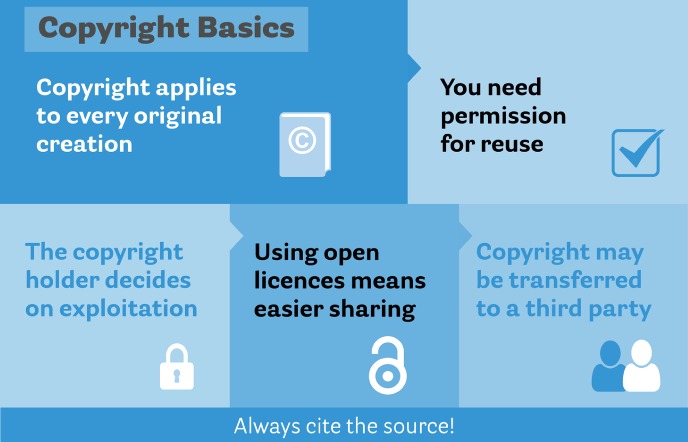Student

Students are also confronted with a lot of decisions that involve copyright. For example, when writing your thesis, are you allowed to use images or part of someone else’s work?
The most important topics are listed below with links to additional information.
Use of third party work
Collecting and processing literature is something you will often do during your studies. Other people’s material is usually copyrighted. So, make sure you know what you can and can’t do with resources created by others.
Citation
When using or reusing someone else’s work, you are always obliged to cite your sources. Good citation ensures that these works are traceable. The way you format your references is subject to strict rules within science, which differ according to discipline.
Plagiarism
If you quote or paraphrase passages and ideas from other people’s work and present them as your own, you are committing plagiarism. Plagiarism is intellectual theft and is considered scientific misconduct. So, it is important to avoid doing this by accident.
Own work
During your studies, you will probably have to deal with intellectual property (IP) rights, including copyright, for instance when writing your thesis. The main rule here is that the student owns the copyright but there are exceptions. Check the bottom of the Intellectual Property page, which also provides a handy flowchart:
Dealing with confidential information
If your research involves personal data, e.g. on interviewees, you should handle them with discretion. Sometimes it is better to leave out (part of) the personal data if you want to make your thesis public.
Questions?Do you have questions about copyright? Please contact copyright rug.nl. Are you looking for information on copyright in education? |
| Last modified: | 29 October 2024 10.48 a.m. |

